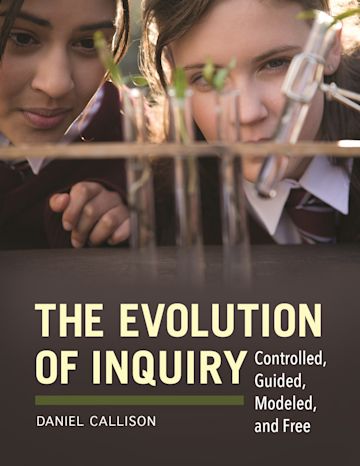This product is usually dispatched within 3 days
Free US delivery on orders $35 or over
You must sign in to add this item to your wishlist. Please sign in or create an account
Defining the progression toward inquiry learning, this book provides an extensive overview of the past five decades and the evolution of inquiry in science, history, language arts, and information literacy studies.
Information inquiry is a basic skill for those who examine information as a science, and its principles can be applied across the K-12 curriculum. Built around reflective reviews of more than two dozen articles from School Library (Media Activities) Monthly, this helpful book shows the evolution, adoption, and application of the inquiry learning process to the school library teaching/learning environment. Four levels of inquiry—controlled, guided, open, and free—are explored in association with the emerging national Common Core curriculum and the Standards for the 21st-Century Learner from the American Association of School Librarians.
With the growing interest in the concept of inquiry and inquiry learning, you may find yourself needing to distinguish between the existing models and their applications. To help you do that, the book provides you with rich, historical context that clarifies the models, and it also projects future applications of inquiry and learner-centered teaching through school information literacy programs. These new applications, such as graphic inquiry, argumentation for inquiry, and the student as information scientist, offer tangible examples you can use to enrich the expanding information literacy curriculum.
| Published | May 26 2015 |
|---|---|
| Format | Paperback |
| Edition | 1st |
| Extent | 272 |
| ISBN | 9781610693868 |
| Imprint | Libraries Unlimited |
| Dimensions | 11 x 8 inches |
| Publisher | Bloomsbury Publishing |
Overall, The Evolution of Inquiry is a labour of love showcasing a lifetime of work from an academic and teacher of teachers. In reading this you will gain an understanding of the relevance of inquiry to libraries and media literacy and see the importance of implementing inquiry-based learning in library programs so we can teach our students the important skill of 'how to think rather than what to think.' (p. 34)
Ontario Library Association
We wish that other discipline experts would recognize the expertise that Daniel recounts in this book. Perhaps it will stand as evidence of our expertise alongside those outside our discipline who claim that area as their own. An important theoretical addition to the literature.
Teacher Librarian
Overall, Callison presents the reader with a historical and comprehensive review of the various education and school library models integral to the concepts of inquiry. The work creates a strong argument for why school librarians can and should be involved in 'the scaffold building toward greater independent learning' (11). Drawing parallels to the author's statement that 'inquiry requires students to be active rather than passive learners' (57), the contents of The Evolution of Inquiry do not lead readers through a controlled story but represent an admirable lifetime of research, which can be interpreted and utilized by those willing to free their minds from the constraints of the library profession.
Library Quarterly
Free US delivery on orders $35 or over
Your School account is not valid for the United States site. You have been logged out of your account.
You are on the United States site. Would you like to go to the United States site?
Error message.

